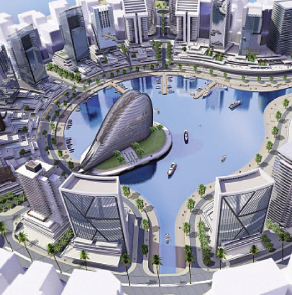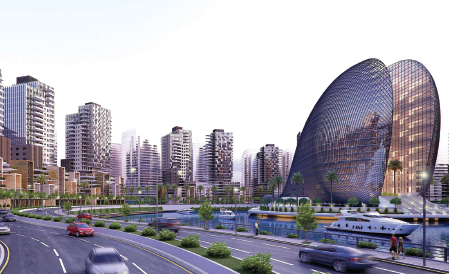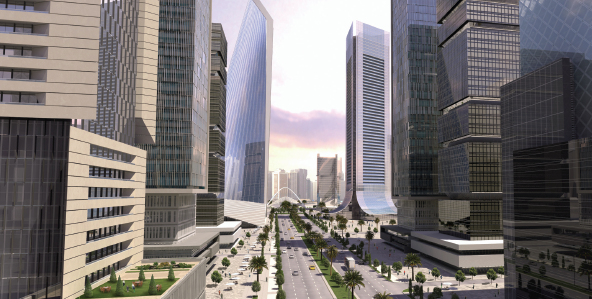What will coastal cities do as rising sea levels slowly claim more and more of their territory? The Nigerian megacity of Lagos is showing the world one way of tackling that problem – but it’s one with tremendous financial and social costs.
Located along the west coast of Africa on the Gulf of Guinea, Lagos is where developers are building Eko Atlantic, a new urban district planned as a ritzy, walled-off enclave of high-end condominiums with helipads, office towers, jogging paths and a yacht marina.
It’s being built on land reclaimed from the rising Atlantic, from which the project’s developers have dredged sand continuously for the past few years to create what will eventually become a four-square-mile-wide island.
“This is going to be the equivalent of Champs Élysées in Paris or Fifth Avenue in New York,” according to David Frame, the managing director of South EnergX, the construction company in charge of the project, in an interview with the Wall Street Journal.
To keep the ocean from clawing away what they’ve painstakingly built since the project began about 10 years ago, developers say they have a plan: The sea defense barrier they’ve built around the island called the “Great Wall of Lagos,” made of more than 100,000 five-ton concrete blocks.
In fact, they needed so much concrete for those blocks that the developers decided to build their own factory on the island to produce it.


















